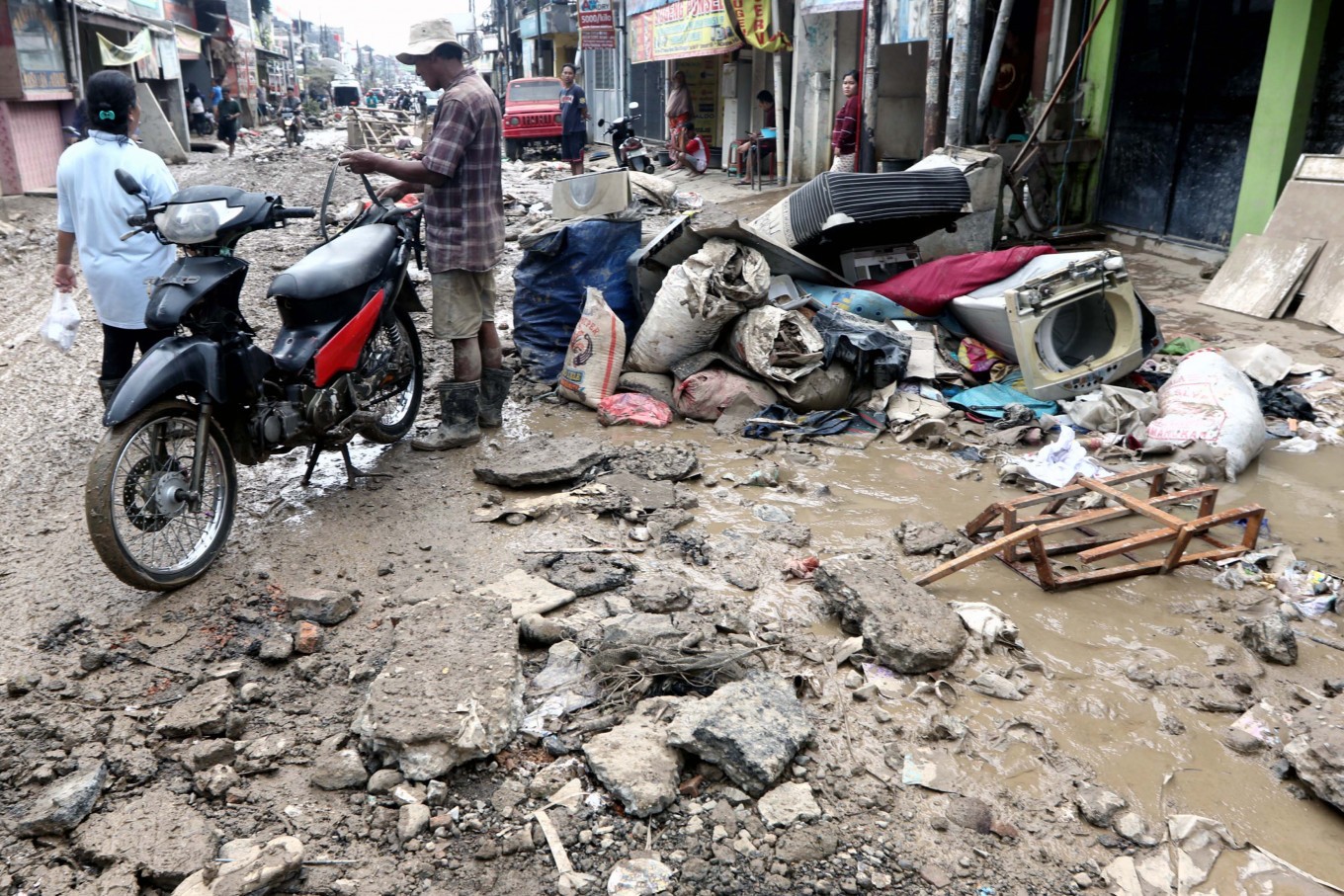Popular Reads
Top Results
Can't find what you're looking for?
View all search resultsPopular Reads
Top Results
Can't find what you're looking for?
View all search resultsBekasi to reassess building permits as part of efforts to mitigate flooding
The Bekasi administration has said it will strictly supervise the waste management of each building, including cracking down on those without a drainage system or those with a poorly built sewerage system.
Change text size
Gift Premium Articles
to Anyone
T
he Bekasi administration in West Java has planned to reevaluate the building permits for malls, apartments and warehouses located in areas that were hit by floods on Tuesday.
The administration said a thorough reevaluation of such buildings would help to prevent flooding in the future.
“This is not a moratorium. All permits related to vertical and horizontal construction, for example buildings, warehouses, apartments – everything that takes up city space – will be evaluated,” Bekasi Mayor Rahmat Effendi said on Friday as quoted by kompas.com.
[RA:Nine die in Greater Jakarta floods: BNPB::https://www.google.com/amp/s/www.thejakartapost.com/amp/news/2020/02/27/nine-die-in-greater-jakarta-floods-bnpb.html]
Effendi said the administration would also strictly supervise the waste management of each building, including cracking down on those without a drainage system or those with a poorly built sewerage system. Any violation of regulations on drainage systems would end in the revocation of a building's permit, he added.
The mayor went on to say that the administration would build more water catchment areas.
In the meantime, Bekasi Deputy Mayor Tri Ardhianto Tjahyono said the reduced number of green open spaces, which contributed to the flooding, could be blamed on the government's construction projects, such as the toll road above the Kalimalang River, Indonesia-China consortium Kereta Cepat Indonesia China’s (KCIC) high-speed railway and the LRT.
Tri said the projects damaged areas that once served as green open spaces.
Construction projects have cut down on the number of such spaces to just 15 percent of what existed previously.
Public Works and Housing Ministerial Regulation No. 5/2008 on spatial planning states that, in urban spatial plans, at least 30 percent of the total area should comprise green open spaces.
“One of the factors that contributed to the flooding is [state projects]. We know that five to 10 years ago, there was green open space along toll roads,” Tri said Thursday as quoted by kompas.com.
Tri said to replace these spaces, the Bekasi administration needed to control floods by building polders.
“We are still entitled to areas such as Situwong and Kempo […] that have yet to be used. We will work on them by turning them into green open spaces," he added.
Read also: Widespread flooding in Greater Jakarta causes chaos for commuters
Floods that hit Greater Jakarta on Tuesday killed nine people, including four in Bekasi. They were the metropolitan region’s biggest floods since January, when more than 60 perished in the capital and its satellite cities. (hol)










